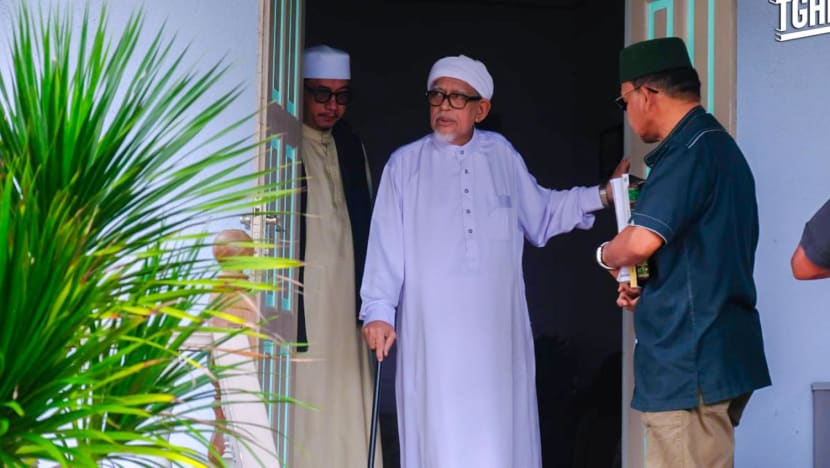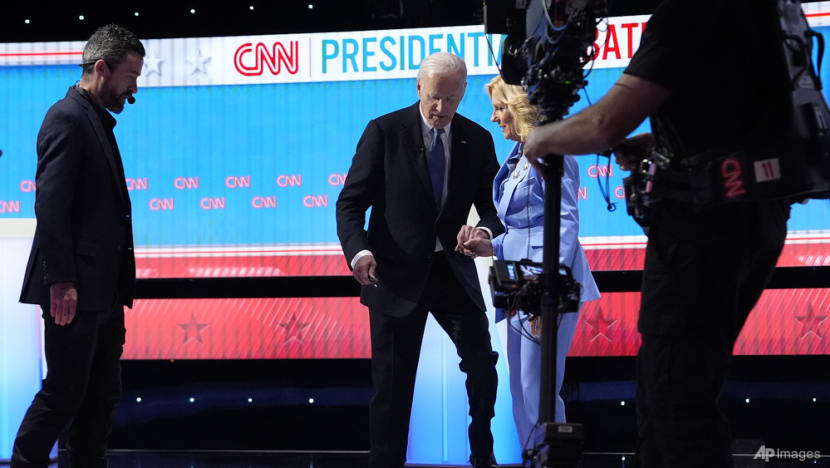Commentary: Why Malaysia’s political elite remains dominated by elderly men
Malaysia’s political landscape is dominated by ageing leaders, with key figures well into their 70s, 80s and even 90s. Southeast Asian politics expert Sophie Lemiere argues that younger leaders must be given a chance to shape the country’s future.
.jpg?itok=0lmbH6ss)
Composite image of Mahathir Mohamad, Anwar Ibrahim and Muhyiddin Yassin. (Photos: AFP/Mohd Rasfan; Reuters/Franck Robichon/Pool; Facebook/Muhyiddin Yassin)

This audio is generated by an AI tool.
KUALA LUMPUR: By the end of 2025, some of Malaysia’s most prominent figures will be well into their twilight years.
Mr Mahathir Mohamad - who served twice as prime minister for a total of 24 years - will be 100. Prime Minister Anwar Ibrahim - who just over two years ago finally won the job he spent decades fighting for - will be 78.
Tengku Razaleigh Hamzah - the former finance minister and longest-serving Member of Parliament known affectionately as Ku Li - will be 88.
Then there’s opposition leader and former prime minister Muhyiddin Yassin, who’s already gearing up for Malaysia’s next general election, which must be held by February 2028. And Parti Islam Se-Malaysia (PAS) president Abdul Hadi Awang, who’s also eyeing the prime minister seat. Both men turn 78 this year.
The list goes on.
In Malaysia, politics is steeped in patriarchy and feudal tradition. Age is often equated with wisdom and authority. Longevity in office is seen as proof of one's skill in navigating the complexities of power.
Age and longevity aren’t inherently bad, but they become a problem if they breed a system that’s resistant to change and stifle new ideas and voices.
In a country where the median age is 30, young Malaysians are underrepresented in politics. The average politician is around 60, and most top leaders are older men. This risks creating a gap between leaders and younger voters, and has real consequences for policymaking and governance.

A GLOBAL GERONTOCRACY
Why do ageing politicians hold on to power? Is it because voters keep electing them, or because political institutions fail to develop credible successors? What are the consequences of their prolonged grip on power? And most importantly, how do they know when it’s time to step aside?
Gerontocracies thrive in societies with rigid hierarchies, where older leaders are revered as embodiments of tradition and continuity. This phenomenon is partly fuelled by the baby boomer generation, a large cohort born between 1946 and 1964, which has dominated politics and other sectors for decades.
This is not unique to Malaysia. Over the past five decades, the average age of world leaders has climbed from 55 to 62, according to The Economist, with leaders in their 70s and 80s increasingly common.
This reflects a broader shift towards gerontocracy, a system where power is concentrated in the hands of the elderly.
In China, President Xi Jinping has consolidated power going into his seventies. A two-term limit on the presidency was abolished from the constitution in 2018, effectively allowing him to remain in power for life.
In Russia, President Vladimir Putin signed an order in 2020 that could keep him in office until 2036, by which time he will be 84.
And in the United States last year, the world watched (until the Kamala Harris late show) as two elderly men, Joe Biden and Donald Trump, battled for the presidency. Former president Biden turns 83 in November; while his successor, Mr Trump, will be 79 in June.
Mr Biden’s frail appearance and disastrous debate performance against Mr Trump last June had raised concerns about his mental acuity and ability to lead the world's biggest economy.

STRONG YOUNG LEADERS, SOME FEMALE
Why do so many societies continue to elect older men to the highest offices? The answer, in part, lies in the enduring appeal of the patriarch - a safe, reassuring figure in a world of uncertainty. Older leaders are seen as steady hands, their age a proxy for experience and resilience. This rationale is particularly pronounced in times of crisis.
Yet the notion that age equals competence is increasingly being challenged. Around the world, crises have created opportunities for younger leaders to rise and demonstrate that competence and vision are not bound by age - or gender.
Sanna Marin, who became Finland’s prime minister at 34, led the country through a turbulent political period before stepping aside at 37. Gabriel Boric assumed the presidency at 35, propelled by widespread protests demanding systemic change.
Similarly, Jacinda Ardern’s leadership in New Zealand during the COVID-19 pandemic and other crises demonstrated that decisiveness is not exclusive to older leaders. These examples challenge the long-held patriarchal notion that age equates competence. It also calls for a rethinking of how we choose our leaders.
WHAT’S AT STAKE?
The problem is not that older leaders are incapable of governing effectively. It is that they risk concentrating power among ageing elites, leaving younger generations sidelined and underrepresented in decision-making.
Today’s world is rapidly changing and shaped by technological advancements such as artificial intelligence and evolving social norms. Older leaders, shaped by a different era, often struggle to reconcile with these transformations, whether they involve technology, gender, identity or equity.
Additionally, as leaders age, health limitations and mental health risks become more pressing, raising questions about their ability to lead effectively in increasingly complex times. The US has already seen concerns over Mr Biden’s health, while in Malaysia, Mr Mahathir - who is still active in politics - has been hospitalised numerous times in recent years.
The issue, then, is not merely one about age but also ensuring leadership reflects the realities of the world it aims to govern.
Is there a way forward?
The first step is to challenge the assumptions that underpin gerontocracy. Age should not be the sole criterion for leadership; competence, vision and the ability to connect with diverse constituencies are equally important.
Political systems must also create pathways for younger leaders to ascend to positions of power, not as proteges to be sidelined, but as equals capable of shaping the future.
Term limits too should be sacrosanct, so that power is not concentrated indefinitely in the hands of one person.
The case for generational renewal in politics is not merely about replacing old leaders with young ones; it is about reimagining leadership itself.
Malaysia does not lack young, capable leaders. What it lacks is a system and a political culture that allows them to thrive. Until that changes, the country will remain stuck in a loop of the same ageing leaders rehashing the same debates and power struggles that have dominated its politics for decades.
Dr Sophie Lemiere is a political anthropologist who specialises in Malaysian and Southeast Asian politics, and has held research and teaching positions in major universities across Europe, the United States and Southeast Asia. She is currently Adjunct Fellow at the Center for Strategic and International Studies, a Washington-based think tank, as well as Research Fellow at College de France in Paris.




















